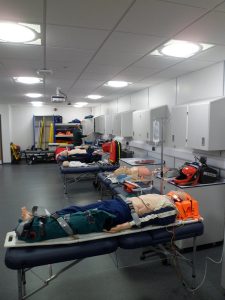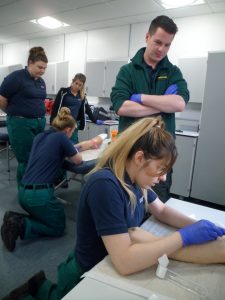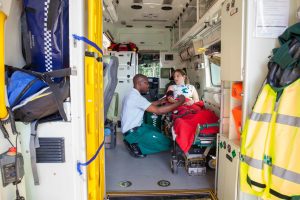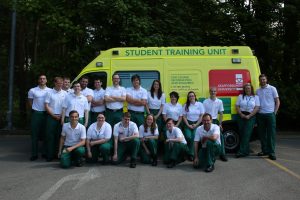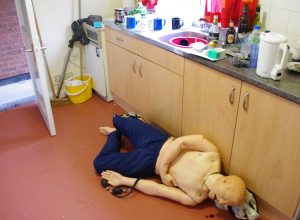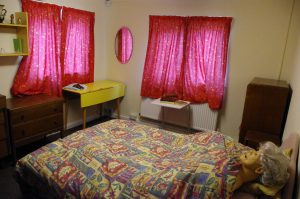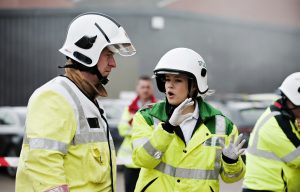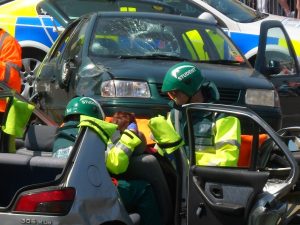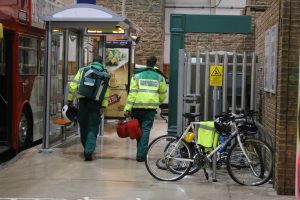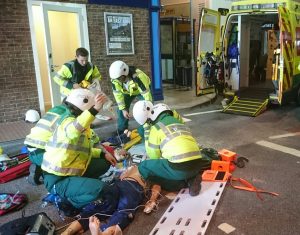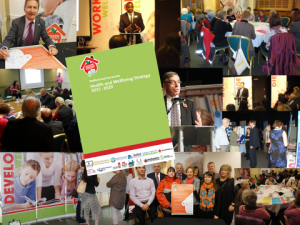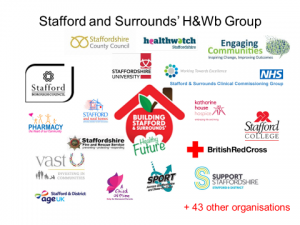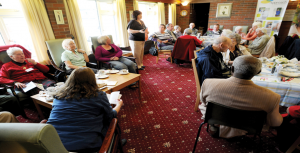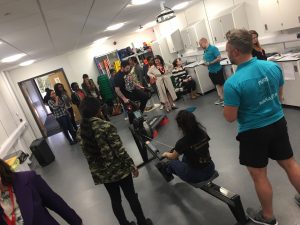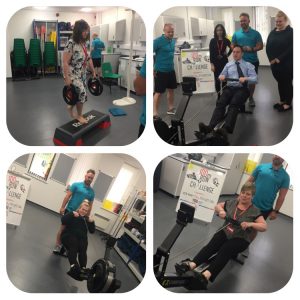So here we have it then, I’m now a second year paramedic. It doesn’t feel like five minutes since I was starting the first year. There has been blood sweat and tears, some of them have even been mine. There have been tears of joy, sadness and sheer exhaustion, however it is still the best decision I have ever made.
During my time at Staffordshire University I have had the privilege of being involved in some amazing experiences either as part of the course or due to being on the course.
I have supported the university with open days by answering questions of any potential new students and being involved in the patient journey which enables others to see of our skills we use out on the road. Being part of the team that showcased the facilities and skills learnt when Staffordshire University opened their centre of excellence, which also included being interviewed for the local radio station and being in the presence of the fantastic Ruby Wax.
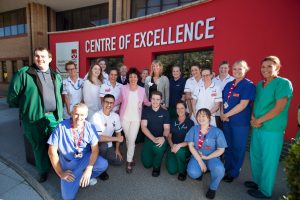
I have been involved in the Stafford Police Open day again talking to people about what we do as a student paramedic and being involved with a scenario of a road traffic accident alongside the police and fire service, this was a particular exciting and nerve racking experience as I was the one in the back of the car giving support to the casualty whilst the fire service cut the roof off the car. With just a few hundred people watching and it being filmed live for facebook. It must have been the hottest day of the year and for our own safety and that of our patients we had to wear the full protective equipment so as you can imagine I nearly melted into my boots.
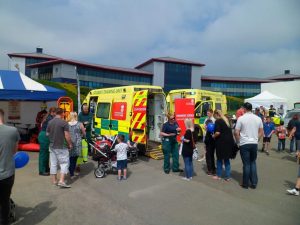
Understanding how other disciplines work is a key focus for any paramedic and sometimes our patients aren’t always at home or even in an accessible area so when Staffordshire Search and Rescue were looking for volunteers to be patients in the middle of a woodland I jumped at the chance. Sitting against a tree in the middle of nowhere pretending to be unconscious during a rain storm is definitely not for everyone but it was certainly a learning experience to see just how quickly and efficiently a group of volunteers work together to not only find someone but to transport them down a hillside quickly and safely to enable the patient to be seen by the ambulance service.
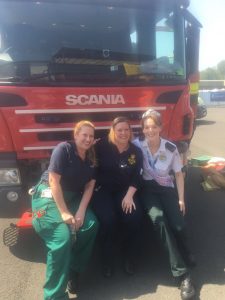
I’ve also had the opportunity to be a part of the first mentor workshop for health professionals at Staffordshire University which involved students from all the different courses to share our experiences of what makes a good mentor during our time of study.
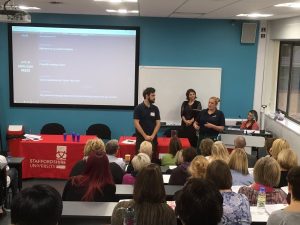
During the course itself there is a lot of under pinning knowledge that needs to be learnt to enable us to make clinical decisions relevant and appropriate to our patients to ensure that they receive the correct and very best care. This means that not only do we have taught lectures with additional reading around the subjects, we also have practical sessions to improve and initiate key skills. These sometimes take place within the skills labs using the mannequins or each other (for assessment techniques only obviously not to be trying to cannulate or intubate each other), but also they sometimes take place at other locations.
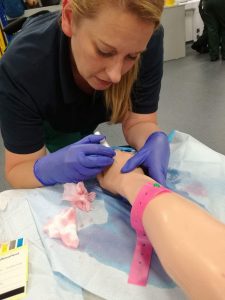
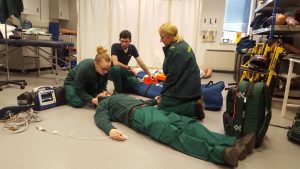
In the second year we have the opportunity to go to SafeSide which is a fire service training facility that has a whole village inside, I know unbelievable or what, it has a railway track, a double decker bus, a canal, a shop, a doctors surgery, a police station with police cells, a court room to name but a few. This enables us to put all our skills into a real-life environment and they even use actors to play real life patients. This and alongside the extrication training we receive from the fire service I don’t think I could’ve been more prepared when I had to attend a road traffic accident for real. It’s like a muscle memory kicks in and I knew what needed to be done straight away but did it have to be again on one of the hottest days of the year so once again I nearly melted into my boots.
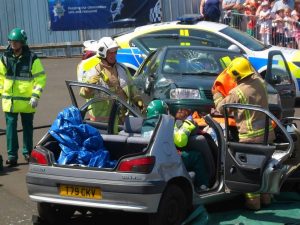
So now I am only 12 weeks away from completing my required amount of hours on placement with the ambulance service and when I look back to the short amount of time I’ve been doing this and the amount of skills and knowledge I have achieved I know I am a stronger person and I will be working as a registered paramedic in a small amount of time. This would not have been possible without the hard work and dedication of all the lectures, staff, mentors and fellow students from previous years, current years and those yet to step into my shoes. I have learnt never to be scared to ask for help whether it be physically or mentally. There is never a stupid question that has not already been asked previously (mainly by myself) and there will be days when you think you can’t do this, you can’t go on, but you do and you will and it will definitely be all worth it in the end.
I look forward to seeing future students out on the road doing what I’m doing now and you never know one day that mentor that’s answering all those stupid questions may just be me.
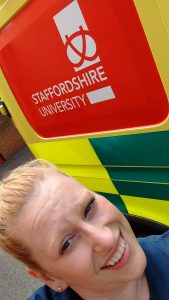
Emma Bywater, Paramedic Student
Published by Eleanor Ball, Paramedic Lecturer, Department of Midwifery and Allied Health, Eleanor.Ball@staffs.ac.uk


